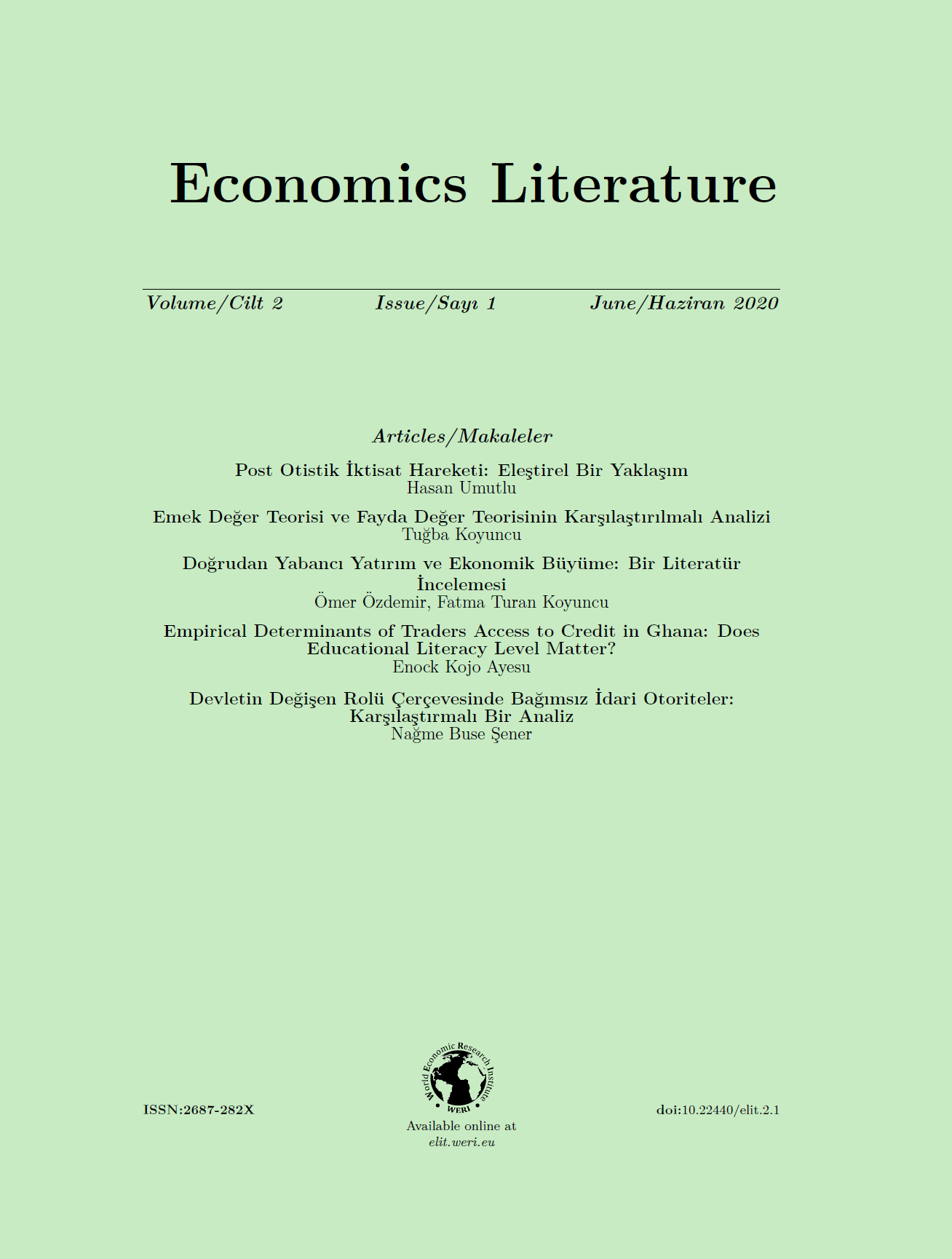
Economics Literature
Yazarlar: Samuel Tawiah Baidoo, Hadrat Yusif
Konular:-
DOI:10.22440/elit.1.1.2
Anahtar Kelimeler:Demand for money,Interest rate,Monetary policy,ARDL,Ghana
Özet: This paper investigates whether interest rate influences demand money in Ghana using annual time series from 1980 to 2016. Demand for money is measured by broad monetary aggregate (M2+) whilst the rate of interest is proxied by the 91-day Treasury bill rate. Other variables included in the study are real income, inflation, and exchange rate. The bounds testing approach to cointegration within the autoregressive distributed lag (ARDL) framework is employed as the estimation technique. The results show that interest rate has no significant influence on demand for money in Ghana in both the long and short run. It is also found that real income has a positive and significant effect on demand for money in the long run. In the short run, inflation exerts a negative and significant influence on money demand. Based on the insignificant relationship between the interest rate and money demand, it is recommended that monetary authorities should not focus much on the interest rate when designing monetary policies that are geared towards stabilizing the economy to expedite economic growth. However, authorities should focus more on inflation and real income as these variables exert a significant effect on the demand for money.